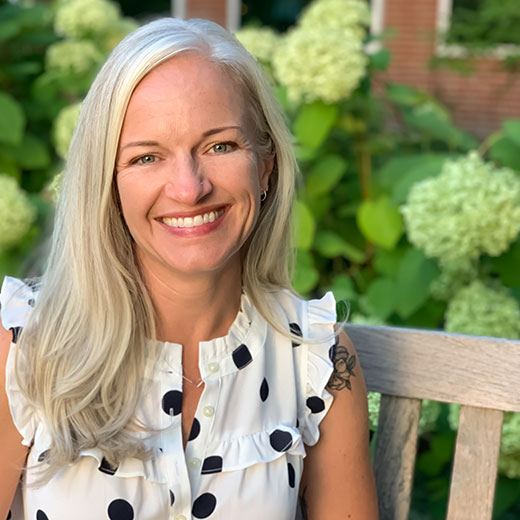Heather D. Shea, Ph.D., director of Women's Student Services in Student Life and Engagement at Michigan State University, was installed as the 83rd president of American College Personnel Association (ACPA): College Student Educators International in March. Dr. Shea is the first ACPA President from Michigan State University.
Headquartered in Washington, D.C. at the National Center for Higher Education, ACPA is the leading comprehensive student affairs association that advances student affairs and engages students for a lifetime of learning and discovery.
ACPA was founded in 1924, and, as stated on its website, “transforms higher education by creating and sharing influential scholarship, shaping critically reflective practice, and advocating for equitable and inclusive learning environments.” It includes, on average, 8,500 members representing 1,200 private and public institutions with members including student affairs staff and faculty, organizations and companies engaged in the campus marketplace, graduate, and undergraduate students enrolled in student affairs/higher education administration programs.
Executive Director of ACPA Chris Moody shared his excitement for the new appointment, saying, “The membership and leadership of ACPA-College Student Educators International are thrilled for the year ahead with the support of President Dr. Shea. As a career-long member and volunteer in ACPA in numerous leadership roles, Dr. Shea is the perfect leader for this next year as it is the 100th anniversary of the organization's existence. In her application materials, Dr. Shea named ACPA as a ‘uniting and compassionate voice for transformation’ in higher education, and it is her personal connection to the core values of the association that will boost her to success in this role.”
Expanding on Dr. Shea’s passion, he added, “In her own words, ‘The focus of my personal, political and professional life has been to find ways to demonstrate my commitment within my spheres of influence by holding myself accountable to learning (and unlearning) and working for social change as an accomplice in spaces alongside colleagues and students.’ On behalf of ACPA, we are excited to have such a passionate, dedicated and visionary leader as Dr. Heather Shea to serve as the 2023-24 president.”
Dr. Shea’s experience spans diverse areas such as residence life, multicultural affairs, women, gender, and LGBTQIA2S+ programs, student activities, leadership development and non-traditional student services. A 2019 graduate of Michigan State University’s Higher, Adult and Lifelong Education (HALE) Ph.D. program, Dr. Shea also holds an affiliate faculty role with the College of Education and teaches in the Student Affairs Administration (SAA) MA Program. She began her term as president March 28, and will preside over the 2024 ACPA Annual Convention in Chicago during the association’s 100th anniversary.
“ACPA has been my professional home for over two decades as a student affairs educator,” Dr. Shea said. “ACPA’s core values and longstanding commitment to racial justice and decolonization align with my own deeply held personal and professional values. I am grateful to Vennie Gore and Genyne Royal who supported my desire to serve in this elected leadership role and promise to also represent the best of MSU and our Division of Student Life & Engagement’s mission on the international stage.”
In her closing address at the ACPA 2023 Convention, Dr. Shea said, “I have high hopes that in the year ahead, there are going to be many opportunities to reflect upon the ways in which higher education and student affairs has been shaped by context, culture and history to evolve and create possibilities to better serve the students of both today and tomorrow, and to act in ways that align with our values, centering the needs of the most marginalized to boldly transform higher education.”
This story was originally published on the Student Life and Engagement website.
